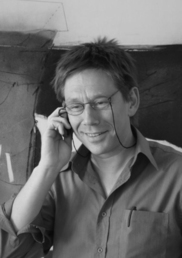In one year, 265'000 students registered to the first MOOCs from EPFL. These MOOCs were used both with our campus-based students and for worldwide students. I will report our first findings: who attend these MOOCs, how much time do they spend, why are some students happy and some students unhappy, how difficult it is to flip a class , what predicts drop-out? I will also report our experiments with students watching MOOCs in teams and our eye tracking experiments. FInally, I will survey European initiatives related to MOOCs.
Pierre Dillenbourg is professor of learning technologies at Swiss Federal Institute of Technology in Lausanne (EPFL) and academic director of the Center for Digital Education. Former teacher in elementary school, Pierre graduated in educational science (University of Mons, Belgium). He started to conduct research in learning technologies in 1984. He obtained a PhD in computer science from the University of Lancaster (UK), in the field of educational applications of artificial intelligence. He is past president of the International Society for the Learning Sciences. His work covers various domain of computer-supported collaborative learning (CSCL), ranging from novel interfaces for face-to-face collaboration (tangibles, paper computing) to more cognitive projects on dual eye tracking. His lab conducts projects in elementary schools, vocational education and university teaching. The Center for Digital Education is both the EPFL MOOC factory, having obtained 265’000 registration for its first year of activity, and a team of scientists doing research on MOOCs.


